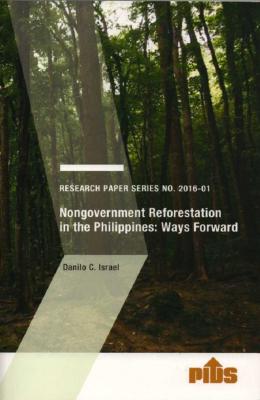
Reforestation is an important element in the environment. It is an artificial regeneration where forest plantations are established to replace its baldness.
As it is, forests are nature’s armor that protects us from calamities. Yet nowadays, they are seriously declining because of excessive exploitation and lack of effective reforestation programs of the government.
The Philippine Institute for Development Studies conducted a research paper series written by Research Fellow, Dr. Danilo C. Israel. This study reviews and assesses non-government reforestation in the Philippines, in comparison with the government’s reforestation efforts and the country’s total reforestation. In addition, the study aims to identify issues and problems on non-government reforestation and how these will be address.
The growth of non-government reforestation had been erratic before the implementation of the National Greening Program (NGP) in 2011. This study states that private reforestation has been the main driver of non-government reforestation in the recent years and in the future. With much help from smallholders, they will produce large quantities of logs that will add to the production of large-scale tree planters.
However, its full development as an industry has been hindered by various institutional, production and marketing issues and problems. This study recommends ways to address these problems and issues to move non-government reforestation forward.
Full details and contents of this research paper is available at the Agriculture and Fishery Knowledge Center of the Agricultural Training Institute in Diliman, Quezon City.
